Trench Collapse Accidents
Excavation and trench collapse (also known as cave-ins) rank among the most devastating accidents that can occur at construction sites in Texas. Despite advancements in safety practices, these accidents continue to pose significant risks to construction workers in the state.
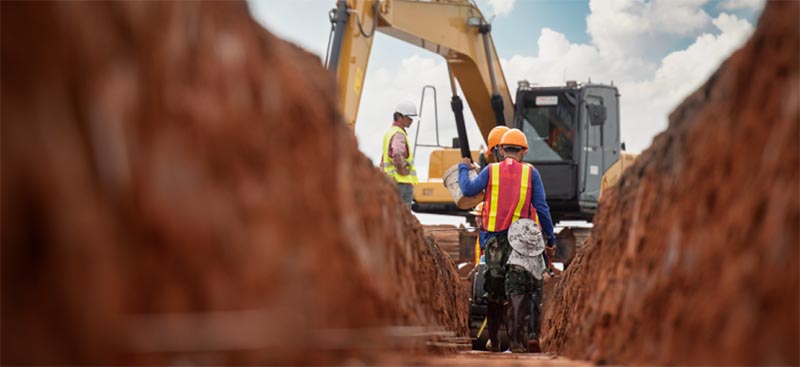
As of the end of November 2022, OSHA recorded 35 fatalities in excavation and trenching work, more than twice the number in 2021. The private construction industry accounted for the majority of these fatalities.
At Miller Weisbrod Olesky, we recognize the seriousness of excavation and trench collapse accidents and their profound impact on the lives of victims and their families. If you or a loved one has been a victim of a trench collapse accident in Texas, you don't have to face the aftermath alone. Our experienced trench collapse accident attorneys are here to help you seek justice and rightful compensation.
Construction Accident Lawyers Near Me
1-888-987-0005
The moment you sign up with us, our legal team will set out immediately to investigate the circumstances of the accident, identify responsible parties, and build a strong case on your behalf. We will have our in-house private investigators and legal video team document the scene and preserve the evidence. We will employ well-qualified and knowledgeable construction and OSHA safety experts to inspect the accident scene. We will fight tirelessly to hold negligent parties accountable for their actions and obtain the maximum financial compensation you deserve.
Causes of Trench Collapse Accidents
Trench collapse accidents in Texas can occur due to various types of negligence, often resulting from the failure to implement proper safety measures and follow established regulations. Some of the common types of negligence that can lead to trench collapse accidents include:
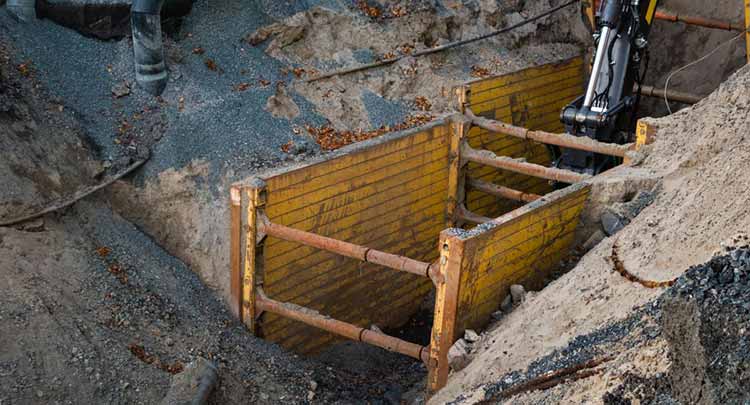
Failure to Conduct Adequate Soil Analysis
Negligence can occur when contractors and construction companies fail to conduct thorough soil analysis before excavation. Different types of soil have varying stability levels, and failing to assess the soil's properties can lead to inadequate shoring or trenching, increasing the risk of collapse.
Inadequate Trench Protective Systems
Negligence causing a trench collapse accident may occur when trench protective systems, such as shoring, sloping, or trench boxes, are not properly designed, installed, or used. Failure to provide adequate protection can lead to trench walls collapsing and endangering workers inside the trench.
Lack of Proper Training and Supervision
Negligence can occur when construction workers are not adequately trained in excavation safety procedures or when there is a lack of supervision on the construction site. Proper training ensures that workers understand the risks associated with trench work and know how to handle potential hazards.
Trench safety measures are required by OSHA to be supervised and designed by a “competent person” that has been trained and is experienced in OSHA and industry safety measures to prevent trench collapse accidents.
Ignoring OSHA Regulations
The Occupational Safety and Health Administration (OSHA) has specific regulations and guidelines for trenching and excavation work to ensure worker safety. Negligence occurs when construction companies fail to adhere to these regulations, such as not providing protective systems, not conducting regular inspections, or not implementing safety measures.
Inadequate Inspection and Maintenance
Negligence leading to a trench collapse accident may happen when trench protective systems and equipment are not regularly inspected or maintained. Equipment that is not properly maintained may malfunction, increasing the risk of trench collapse accidents.
Rushing or Cutting Corners
A trench collapse accident can occur when construction companies prioritize speed over safety, leading to shortcuts in safety protocols. Rushing the excavation process without proper planning and precautions can lead to hazardous conditions.
Failure to Identify Utilities
Trench cave-ins may occur when contractors fail to identify and mark the locations of underground utilities before excavation. Accidentally hitting a utility line can destabilize the trench walls and lead to a collapse. A pre-work inspection that locates and evaluates these destabilizing structures must be conducted by a competent person before allowing construction workers to enter the trench area.
Improper Use of Heavy Equipment
Negligence may arise when heavy equipment and machinery (such as excavators, trenchers, backhoe loaders, and bulldozers) are operated too close to the edge of the trench, causing vibrations and destabilizing the soil, increasing the risk of collapse.
At Miller Weisbrod Olesky, our Texas trench collapse accident lawyers will investigate and prove the negligence of construction companies, general contractors and/or other liable parties that led to your accident and injuries. We will not hesitate from going to trial if a satisfactory settlement cannot be reached with the defendants to maximize your compensation.
OSHA Regulations to Prevent Trench Collapse Accidents in Texas
To prevent trench collapse accidents at construction sites, the Occupational Safety and Health Administration (OSHA) has established specific regulations and guidelines under 29 CFR 1926 Subpart P - Excavations. These regulations are designed to ensure the safety of workers during trenching and excavation activities. Here are some key OSHA regulations aimed at preventing trench collapse accidents:
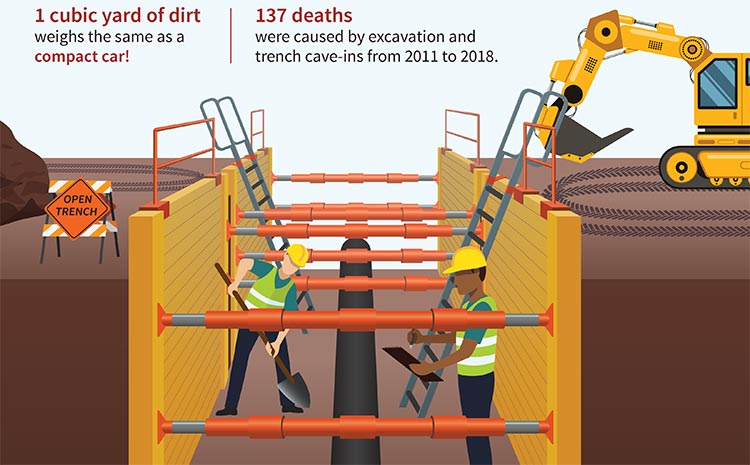
Protective Systems (29 CFR 1926.652)
- Employers are required to implement appropriate protective systems, such as shoring, sloping, or trench boxes, to protect workers from cave-ins.
- The chosen protective system must be designed by a registered professional engineer or be based on tabulated data.
Soil Classification (29 CFR 1926.651)
- Before excavation begins, employers must determine the soil type and classify it as stable rock, Type A, Type B, or Type C soil.
- The soil classification is crucial in determining the proper protective system to be used.
Daily Inspections (29 CFR 1926.651)
- Trenches must be inspected daily and as conditions change by a competent person for any signs of potential collapse, water accumulation, or other hazards.
- Any unsafe conditions must be addressed promptly to prevent accidents.
Access and Egress (29 CFR 1926.651)
- Safe means of access and egress must be provided to allow workers to enter and exit the trench easily.
- Ladders or other safe means of exit must be located within 25 feet of workers in trenches more than four feet deep.
Hazardous Atmospheres (29 CFR 1926.651)
- Employers must test for hazardous atmospheres, such as low oxygen levels or toxic gases, before workers enter the trench.
- Ventilation or other measures must be taken to prevent hazardous atmospheres from forming in the trench.
Spoil Piles and Materials (29 CFR 1926.651)
- Employers must keep spoils and other materials at least two feet from the edge of the trench to prevent additional weight and pressure on the walls.
Underground Utilities (29 CFR 1926.651)
- Employers must locate and identify underground utilities before excavation begins to avoid damaging them, which could destabilize the trench walls.
Safety Training (29 CFR 1926.21)
- Employers must provide workers with training in excavation safety, including recognizing hazards and proper procedures for working in and around trenches.
Compliance with these OSHA regulations is vital to ensuring the safety of workers involved in trenching and excavation activities. By implementing these protective measures, construction companies can significantly reduce the risk of trench collapse accidents and create a safer working environment for their employees. Regular safety training, proper protective systems, and consistent inspections are essential components of a comprehensive trench safety program that prioritizes worker well-being.
Trench Collapse Injuries in Texas
Trench collapse accidents on construction sites in Texas have a high incidence of fatalities. Workers involved in or near the excavation site who survive the trench collapse may suffer from various types of injuries. In the experience of our Texas excavation and trench collapse accident lawyers, some of the serious injuries that may occur in these accidents include:
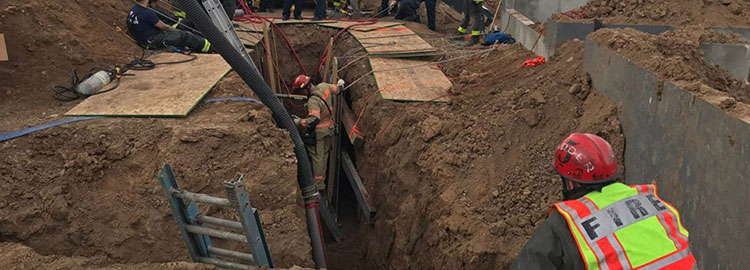
- Traumatic Brain Injuries (TBIs): If workers are struck by falling debris or equipment during a trench collapse, they may sustain traumatic brain injuries, leading to cognitive impairment, memory loss, or other neurological issues.
- Spinal Cord Injuries: The force of the collapsing soil can cause spinal cord injuries, resulting in partial or complete paralysis, depending on the location and severity of the injury.
- Crush Injuries: Workers trapped under the collapsing soil can suffer crush injuries, where the weight and pressure of the soil cause damage to bones, muscles, and internal organs.
- Amputated Limbs: In severe cases, trench collapse accidents can lead to the complete or partial amputation of limbs due to the crushing force of the soil.
- Internal Injuries: The force of the collapsing soil can cause internal injuries to organs, leading to internal bleeding or damage.
- Fractures and Broken Bones: Workers caught in the trench collapse can suffer fractures and broken bones in their limbs or other parts of the body.
- Suffocation or Asphyxiation: Workers trapped in a collapsed trench may be deprived of oxygen, leading to suffocation or asphyxiation.
- Respiratory Issues: Workers exposed to dust, soil, and other debris during a trench collapse may develop respiratory issues or lung damage.
- Electrical Injuries: In some cases, trench collapse accidents may involve contact with underground utility lines, leading to electrical injuries and electrocution.
- Chemical Exposure: Trench collapses may expose workers to hazardous substances or chemicals present in the soil or construction materials, leading to chemical burns or other health problems.
- Post-Traumatic Stress Disorder (PTSD): Survivors of trench collapse accidents may suffer from psychological trauma, leading to PTSD and other mental health issues.
At Miller Weisbrod Olesky, our excavation and trench collapse accident attorneys in Texas will thoroughly investigate your accident and hold the negligent parties liable. We will not rest until you have received the largest possible financial compensation you are entitled to for your injuries and losses.
Types of Construction Equipment Involved in Excavation and Trench Work
Excavation and trench work involve the use of various types of construction equipment to dig, shape, and support trenches. These equipment pieces are essential for efficient and safe excavation processes, but their improper use can lead to a trench collapse and result in catastrophic injuries. Some common types of construction equipment used in excavation and trench work in Texas include:

- Excavators: Excavators are heavy construction machines equipped with a bucket on an articulated arm, commonly known as a dipper or boom. They are used to dig and remove soil, debris, and other materials during trenching and excavation.
- Backhoe Loaders: Backhoe loaders are versatile machines that combine a loader at the front and an excavator at the back. They are commonly used for digging trenches, backfilling, and loading materials onto trucks.
- Trenchers: Trenchers are specialized machines designed specifically for digging trenches. They come in various sizes and types, including chain trenchers, wheel trenchers, and micro-trenchers.
- Bulldozers: Bulldozers are heavy-duty machines with a large blade in the front. They are used to push, grade, and shape soil during excavation and trench work.
- Skid-Steer Loaders: Skid-steer loaders are compact machines with a small turning radius, making them ideal for working in tight spaces. They can be equipped with various attachments, including trenchers and backhoes, for excavation tasks.
- Compactors: Compactors are used to compact and stabilize the soil after excavation to create a stable foundation. Types of compactors include vibratory plate compactors and smooth drum rollers.
- Loaders: Loaders are heavy machinery used to move large amounts of soil, rocks, or construction materials. They are commonly used in excavation and trench work for loading and transporting materials.
- Graders: Graders are machines equipped with a long blade used for leveling and smoothing the soil surface after excavation.
- Vibratory Hammers: Vibratory hammers are used to drive sheet piles and other support structures into the ground to stabilize trenches and excavations.
- Pneumatic Tools: Pneumatic tools, such as jackhammers and air spades, are used for breaking up hard soil or concrete during excavation.
- Shoring and Trench Boxes: Shoring equipment, including steel trench boxes and hydraulic shoring systems, is used to support trench walls and prevent collapse during excavation.
Each of these types of construction equipment plays a vital role in the excavation and trenching process, enabling construction crews to efficiently and safely create trenches for various projects such as utility installations, foundation work, and pipeline construction. Safety training and proper operation of these machines are essential to prevent accidents and ensure the well-being of construction workers on the job site.
If you have been injured in a trench collapse accident or someone you love lost their life due to wrongful death during excavation and trench work, you should consult with our dedicated Texas trench collapse lawyers at Miller Weisbrod Olesky to explore your best legal options for recovering the compensation you rightfully deserve.
OSHA Cites Texas Utility Contractor for Willful Violations Following Fatal Trench Collapse
In the wake of a tragic trench collapse incident that claimed the life of a worker in June 2022, a federal investigation has uncovered serious safety violations committed by a Texas utility contractor. The investigation revealed that the company willfully disregarded required workplace safety standards, resulting in the death of one of its employees while repairing a main sewer line in a trench.
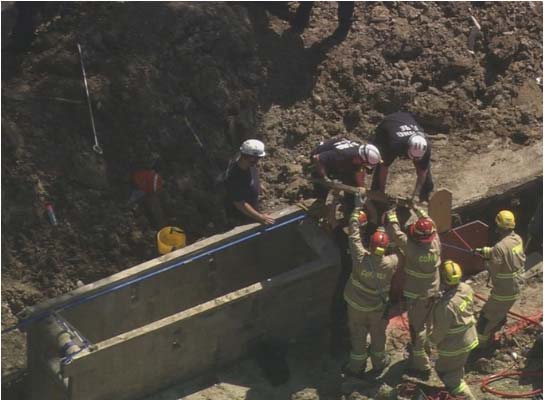
The incident took place at a residential construction site in McKinney, Texas on June 24th, 2022. According to the US Department of Labor's Occupational Safety and Health Administration (OSHA), the two workers were allowed to enter the trench without any protection system in place. Tragically, the trench collapsed, engulfing, and fatally injuring one worker. The other worker narrowly escaped.
OSHA investigators determined that the contractor violated federal law by not implementing a trench protective system. Furthermore, the employer allowed the use of a damaged ladder that did not meet the required standards, as it did not extend three feet above ground level. Additionally, the company failed to conduct proper inspections of the trench at the beginning of each shift before allowing employees to work in the excavation.
OSHA Area Director in Dallas, Texas, expressed deep concern over the incident, emphasizing the need for compliance with established safety processes that adhere to OSHA standards. He remarked that such incidents are preventable and that the safety of workers should always be a top priority.
Trench collapses pose a significant risk to construction workers, with one cubic yard of soil weighing approximately 3,000 pounds. These accidents happen suddenly, explaining why they are considered among the construction industry's most lethal hazards.
Trenching and excavation-related fatalities have been on the rise. The Bureau of Labor Statistics has reported that between 2011 and 2018, trench collapses claimed the lives of 166 workers.
Federal trenching safety standards dictate the use of protective systems for trenches deeper than 5 feet, with soil and other materials kept at least 2 feet away from the trench's edge. The presence of standing water and atmospheric hazards must be eliminated, and a safe means of entry and exit must be ensured before workers are allowed to enter the trench.
This tragic incident serves as a reminder of the importance of adhering to these safety standards, not only to prevent accidents but also to protect the lives and well-being of construction workers across the nation.
Get the Leading Texas Trench Collapse Accident Lawyers on Your Side
If you or a loved one has suffered injuries or lost a family member in a trench collapse accident, you don't have to face the legal battle alone. At Miller Weisbrod Olesky, our dedicated trench collapse accident attorneys in Texas are here to fight for your rights and seek the justice you deserve.
Don't let the financial burden and pain and suffering overwhelm you during this challenging time. Let our skilled trench collapse accident attorneys handle the legal complexities while you focus on healing and rebuilding your life. Our extensive knowledge of OSHA regulations and excavation safety measures allows us to build a powerful case on your behalf. Contact us today to schedule your free, no-obligation consultation with our legal team.
The Leader In Construction Accident Litigation With A Record Of Multi-Million Dollar Settlements And Verdicts
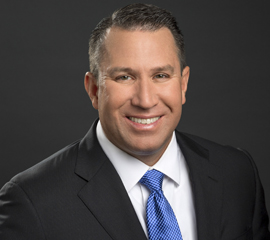
With a 30-year history heading the Construction Accident Department of Miller Weisbrod Olesky, firm partner Clay Miller has a proven record of holding construction companies accountable and achieving multi-million dollar settlements and court verdicts for his clients. Clay has handled construction accident cases in all major cities in Texas and numerous smaller counties. In one recent trial, Clay won a construction accident verdict of $26,500,000 for his client who suffered a spinal cord injury after a construction accident fall.
Clay has been consistently listed in Super Lawyers as one of the Best Lawyers in Texas, published in Texas Monthly, for over 15 years.
Clay is a past president of the Dallas Trial Lawyers’ Association and served as Chair of the Advocates for the Texas Trial Lawyer Association where he continues to serve on the board of directions. Clay is also a member of the elite American Board of Trial Advocates (ABOTA) limited to a select group of trial lawyers who have tried to a jury verdict a significant number of cases and who are recognized for their professionalism.
Clay is regularly invited to speak to Trial Lawyer Groups around Dallas, Houston, San Antonio, Austin, and across the state of Texas on the topics of construction accidents, trial tactics in complex construction cases and techniques to investigate and gather evidence in construction accidents, picking a jury in construction accident cases, as well as how to prepare a winning legal and trial strategy in Construction Accident Cases throughout Texas.
Our construction accident legal team includes Josh Birmingham, who is currently on the Dallas Trial Lawyers Board of Directors and served as the president of the Mesquite Bar Association for four years. Josh was named Thomson Reuters | Texas Super Lawyers Rising Star in 2016 and 2017.
We also have on our team Michael Orth, a board certified personal injury trial lawyer who has spent the last decade representing injured Texans and their families. Michael’s success in scores of personal injury cases across federal and state courtrooms has earned him the coveted Board Certification in Personal Injury Trial Law by the Texas Board of Legal Specialization.
Led by a formidable legal team with an extraordinary record of court verdicts and settlements in construction accident cases, Miller Weisbrod Olesky is regularly recognized by the US News and World Report as one of the top injury law firms in the United States.
Miller Weisbrod Olesky Texas Construction Accident Lawyers
Clay Miller

Clay is Board Certified in Personal Injury Trial Law by the Texas Board of Legal Specialization. Clay has practiced solely in the field of catastrophic injury and wrongful death since graduating from law school. His practice has been limited to the representation of victims. Over the past twenty-four years, Clay has successfully settled or tried to verdict cases in the areas of vehicular negligence, medical malpractice, construction site accidents, workplace injury, premises liability, and commercial trucking and a nationwide business loss case (suits filed in a dozen different states) involving defective truck engines sold to trucking companies.
Clay's most recent victories include when general contractor ignored its own requirements for safety training of a subcontractor workforce. As a result, our client never received training in how to properly use his fall protection equipment. Our client fell two stories and hit the ground because the equipment was hooked up improperly. He was left paralyzed. When the general contractor refused to tender their insurance limits, Construction Accident Attorney, Clay Miller tried the case in Texas, and obtained a verdict of $26,500,000, including $15,000,000 of punitive damages.
Clay was raised in Lewisville, Texas and completed his undergraduate degree in Finance at
Texas A & M University. Following graduation from Southern Methodist University School of law, Clay worked for two Dallas firms representing victims. In 1998, Clay began his own practice before forming his current partnership. In addition to his law practice, Clay has lectured at seminars and published in the areas of construction accidents, jury selection techniques, medical negligence, trucking accidents and settlement tactics.
He is active in local and statewide trial lawyers' associations including serving as the Chair of the Advocates for the Texas Trial Lawyers' Association in 2002 and remains on the Board of Directors. Clay served as President of the Dallas Trial Lawyers Association from 2008-2009. He has also been a member of the American Board of Trial Advocates (ABOTA) since 2014.
Education
- Southern Methodist University School of Law - Dallas, Texas
- Texas A&M University - Finance - College Station, Texas
Areas of Practice
Associations & Memberships
- State Bar of Texas
- State Bar of New Mexico
- State Bar of Colorado
- American Board of Trial Advocates (ABOTA)
- Texas Trial Lawyers Association
- Dallas Trial Lawyers’ Association
- American Association of Justice
Josh Birmingham

Josh Birmingham was born in Las Cruces, New Mexico and raised in the small oil town of Hobbs, New Mexico. He graduated from the University of Nebraska in 2004 where he was a part of the Big 12 champion baseball team and was a College World Series participant.
He obtained his law degree from the University of Tulsa: College of Law in 2007 where he earned numerous awards in Mock Trial and Negotiation competitions.
Josh began his career at another prominent law firm where he fought for the victims of other’s negligence.
After 9 years Josh left being a trial lawyer and became an executive for a healthcare consulting firm but his passion for helping others in the law quickly pulled him back. Josh has tried numerous cases in both state and federal court. Josh began his first day with Miller Weisbrod Olesky in trial with Clay Miller representing an injured construction worker, Fernando Canales. Josh second chaired the trial and handled all of the medical expert testimony in the case.
Click Here: for complete verdict information
Josh is a member of the State Bar of Texas, American Association of Justice, Texas Trial Lawyers Association, Dallas Trial Lawyers Association, and Dallas Association of Young Lawyers. He is currently on the Dallas Trial Lawyers Board of Directors and served as the president of the Mesquite Bar Association for four years. Josh was named Thomson Reuters | Texas Super Lawyers Rising Star in 2016 and 2017.
Josh accredits his passion toward helping others to his mother Pam Parkinson, a nurse and business woman, and his father Ray Birmingham a college baseball coach.
Education
- University of Nebraska
- University of Tulsa - School of Law
Areas of Practice
Associations & Memberships
- American Association of Justice:
Member
- Texas Trial Lawyers Association:
Member
- Dallas Trial Lawyers Association:
Member
Board of Directors - Dallas Association of Young Lawyers:
Member
- Mesquite Bar Association:
Member
Michael Orth

Michael is a board certified personal injury trial lawyer who has spent the last decade representing injured Texans and their families. Born and raised in Dallas, Michael attended Texas A&M University where he earned a Bachelor of Science in Political Science. Following graduation, Michael worked in sales for one of the largest trucking companies in the United States. While working in the trucking industry, Michael saw the dangers that can and do occur when companies put profits before safety, and safety is not provided its proper place at the table. It was at this point Michael decided to pursue a career in law to help those harmed by the negligence of others.
Michael attended the University of Houston Law Center, where he served as a Senior Articles Editor for the Houston Journal of International Law. Throughout law school, Michael clerked at one of the 5 law firms that represented the State of Texas against Big Tobacco, where he worked on cases ranging from catastrophic crane collapses, to sexual abuse cases to environmental class action lawsuits. Most importantly, Michael learned the law could be used to do a lot of good in peoples’ lives, and could help those who had been injured because of the carelessness of others.
After obtaining his law license, Michael moved to South Padre Island and practiced personal injury law in the Rio Grande Valley. While practicing in South Texas, Michael tried nearly 20 cases in federal and state courtrooms across South Texas, consistently obtaining verdicts significantly higher than the insurance companies’ offers. As a result of his success in the courtroom, Michael is Board Certified in Personal Injury Trial Law by the Texas Board of Legal Specialization, a designation earned by practicing personal injury law almost exclusively, showing substantial success and experience trying personal injury lawsuits, completing extensive Continuing Legal Education in personal injury trial law, and passing a rigorous written exam demonstrating superior competence in handling personal injury cases.
Michael is married to Katlyn and has 2 young daughters, Kathleen and Mary Louise. Michael volunteers for the Dallas Volunteer Attorney Program, providing pro bono legal services to others in the community.
Education
- Texas A & M University
- University of Houston Law Center
Areas of Practice
Associations & Memberships
- American Association of Justice:
Member
- Texas Trial Lawyers Association:
Member

